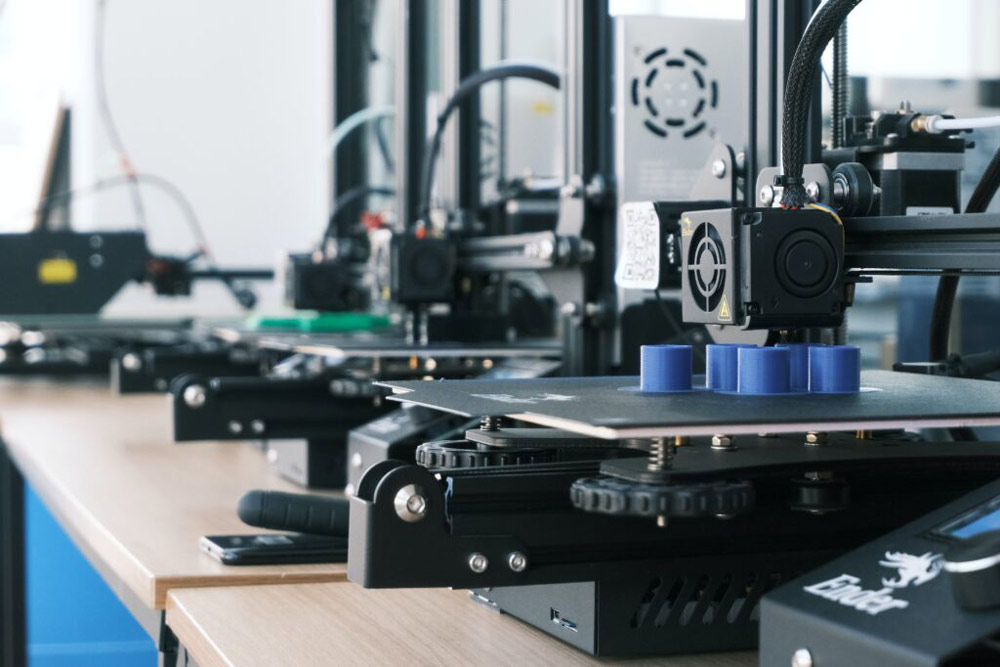
Nowadays, it is impossible to imagine a newly launched industry, regardless the size, without some IT Networks. Modern manufacturing isn’t a technique that allows the production of a service or a product.
It is the leading part that makes producing high-quality and cost-competitive products possible. It is the new engine of global development that improves production, operations, and allocation of resources.
Over the last decade, technological developments have already affected the manufacturing industry. So, if you are a market player and can manage them well, you will have a notable leg up on your competitors.
With that in mind, we will cover the most fundamental challenges faced by the manufacturing industry and how Technology can help the Manufacturing Process.
Top 5 Challenges of IT Networks faced by the manufacturing industry
1. Managing Data
Manual data analysis is not only time-consuming and risky, but it also fails to note important insights about business decisions.
Unfortunately, predictive analytics and data management to make forecasts about future or otherwise unknown events is another challenging point due to the inability to utilize those massive amounts of past data, statistical algorithms, and machine learning techniques to generate insights.
IT Networks allow manufacturers to account for accurately tracking all production phases in ways that improve efficiency and optimize production.
2. Cybersecurity threats
Thanks to the Automation caused by the fourth revolution, manufacturers face significant cybersecurity threats due to excessive usage of the internet, artificial intelligence, and robotics.
Accordingly, IT Support must be innovative to offer full cybersecurity assistance, not just defensive, to minimize these destructive threats.
3. Downtime
Downtime, or especially unplanned Downtime, is one of the age-old and endless IT challenges in the manufacturing industry.
It is undeniable to say that every minute of Downtime can be costly. So, your business must avoid Downtime, and IT Support is the front-line force in the fight against Downtime.
IT Support will set strategies to minimize unplanned Downtime. It will keep your business’s hardware and operating systems have the latest updates to push them out to meet unexpected security threats and stop existing exposures.
4. Technical Agility
Technical Agility is one of the most critical elements in the success of a manufacturing industry. After covid19 pandemic, the increasing rate of technological change is very high.
So, manufacturers who want to move forward must be prepared for the known and the unknown and to be able to quickly adapt to changing market demands and those technological innovations because the lack of technology holds back innovation and lead to horrible losses.
Obviously, this is a challenge because traditional production lines were often highly optimized for specific needs. Moreover, old-age techniques can’t combine with the latest applications and platforms that can quickly move as data changes. However, Technology can help.
5. Incorporating new technologies
Unfortunately, new technology adoption, such as cloud computing, is not easy. Because of the absence of a clear plan for determining technologies that help to deliver business goals, the increasing rate of change in manufacturing technology, gaps in the skills and competencies of workers, and costly certification requirements make it harder to reconfigure existing systems.
However, in the next few years, more data will be generated than ever. Therefore, your business must catch it and work on it.
Now you are getting somewhere and understand what you might face!
Suppose you have assembly lines that are never affected by unexpected downtime, well-scheduled maintenance work, and spare parts that been arrived in advance.
These are the incredible powers of IT Networks that can smoothly complete almost any task and reveal the impact of IT Support on the manufacturing industry.

Top 5 Impacts of IT Networks on the manufacturing industry
1. Quality control
IT Support can ensure the highest quality for your products. Thanks to quality management systems like cloud-based software and standard operating procedures can reduce miscommunication and simplify your Manufacturing process.
Additionally, Manufacturing technology has the main benefit of improving quality which is less likely to be affected by human error.
2. Cost and Time Reduction
Technology can operate with better efficiency and fewer workers, creating long-term cost savings.
It can reduce your planning, execution, and production time by optimizing the layout of your business, identifying weaknesses in the production steps, and simulating the quality and output of products before the beginning of the first trial of your manufacturing process.
3. Automation
Automation can optimize your business’s schedule to reduce defects and inefficiencies, creating better-quality products without human interference.
Technology is more compatible, so it helps improve the accuracy and quality of production by developing a process using a set of instructions and allowing a single or sequence of repeated actions to happen without supervisor intervention.
Also, automation reduces the time spent on each manufacturing process and helps your business fully utilize its capital and human resources by allocating workers to more critical jobs that require their attention.
4. Enhance the workforce
It could be destructive if your employees didn’t know vital information, such as lead times for specific products.
Technology can help to benefit your workers a Communication Software for easy interaction and utilize cloud-based inventory management software to understand incoming and outgoing products.
When you invest in the right technology, business information will be better organized and accessible, and risks that can be resulted from human errors can be recognized early. So, with IT
Support, your business’s data will be better organized by inputting all of them into a cooperative system that permits access to data anytime, onscreen or remotely for your authorized workers.
5. Optimize Supply Chain
Early observation of warning alerts as things start to go wrong and early problem prediction can lead to early problem solutions. IT Support can help the entire supply chain benefit from applying a strategy that follows the delivery timetable issues.

Takeaway
Any business, after a bit, will face technical challenges relating to its information technology. So, if you are ready to overcome these challenges with efficient IT Support, Contact Us Now!
Innovation Networks provide IT support for manufacturing companies using the managed service model of creating, supporting, and managing remote work conditions to deliver proactive IT Support.
Our goal is to create intelligent IT Networks that can autonomously control conditions throughout the value chain in which we will help you resolve any technical challenges your business may be facing.
We bring an end-to-end strategy to your IT Networks that allows your business to maintain the best technology for your needs and make work easier for companies and workers.
